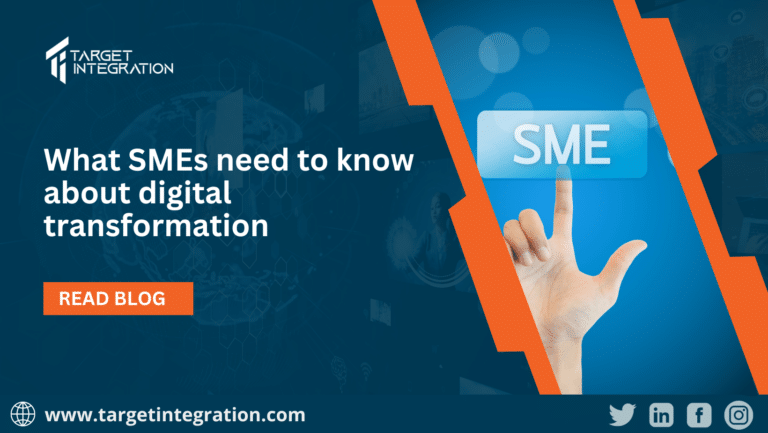Enterprise Resource Planning (ERP) and Customer Relationship Management (CRM) system go great together and they happen to be two of the most important tools available to businesses at the moment. Now ERP systems are known to be the “back-end” (like HR, accounting, manufacturing, purchase, streamline business processes), as they’re responsible for all data being used in an enterprise. In the same manner, CRM systems can be said to be the “front-end” (customer interactions, manage sales pipeline, up-sells, track customer info, support, create dashboard), with them being directly involved in enriching user experience.
Now, most enterprises use both ERP as well as CRM systems, however, they are often implemented separately. But, how would it be to integrate ERP & CRM together? Well, both of these systems tend to have distinct benefits, however, if you combine them, then it could be more beneficial.
In fact, many companies have already realized the need to integrate ERP with the CRM system and hence these systems are being integrated by many small and mid-scale enterprises in order to automate & enhance the management of the firm’s operations.
So, here let’s explore the key benefits of ERP & CRM integration:
Accurate product forecasting:
Integrating marketing with ERP enhance links forecasts to production. Thus, the operation managers will be able to forecast the capability with a lot more accuracy, thus preventing the buildup of excess inventory, which works to tie up cash that could be used for some better work.
Fast product delivery:
The free flow of the data between these two systems with automatic updates regarding changes in the customer details & orders will allow enterprises to ship products quickly, reducing the operational costs and increasing customer satisfaction. When delivering the products on time, it will help a business in standing out from the competitors.
Quicker Billing:
Integration of CRM & ERP, allow businesses to automatically turn the proposals created in CRM into the actual orders executed and tracked in ERP system, sans any manual intervention. Now, this is definitely going to result in quick invoices & payments. Automatic updates will keep both the systems in sync and will prevent any possibility of inaccurate or inconsistent data.
Also, in case any alterations or changes are made in ERP database, it will simultaneously reflect in CRM system & vice versa, also comprising of the addition/remove of the custom fields, new entries, or changes made in the database.
Qualified sales:
When your sales team is allowed to view the customer’s current balance, credit limit, previous orders and list of outstanding invoices, it provides the complete financial history of the customer to the salesperson and this will be helpful in influencing proposal terms. This information will allow managers to make more informed business decisions, like asking for advance payment.
Faster approvals:
With sales persons having real-time access to the ERP system, they will be able to move sales contracts through the approval process in real-time, which would reduce the time for the customer approvals and will also allow same day signing. Quicker sales contracts approvals will also shorten the time for billing and to recognize revenues.
Accurate proposals:
By integrating ERP with CRM, sales representatives will be able to use the most accurate pricing as they prepare a quote by retrieving the updated pricing info, including promotional or the discount pricing. Also, the latest update in terms of product availability will be resulting in the more accurate shipment dates as well as will allow for the special rush orders in case the merchandise is out of stock to meet the customer deadlines.
Enhanced sales opportunities:
With sales persons having access to leads, customer service calls and order history, then they stand a better chance to reach out & close a deal. For an instance, when salespersons know the frequency with which repeat consumers will be placing orders, they will be able to proactively contact customers to up-sell or cross-sell. When they know when the customers are facing equipment issues, they will be able to contact them so to upgrade & purchase an advanced model of that old product.
Conclusion:
Hence it is pretty evident that integrating ERP with CRM system will have an array of advantages and leaves a lot of scope for more. At the same time, this integration of these systems will also to get rid of many flaws, such as data redundancy, inconsistent formats, and delays. Besides, it will also be easier to manage one integrated system as compared to two individual systems.
Thus, overall, coming together of ERP & CRM will be great for your business. Contact us to know more about ERP & CRM.
















